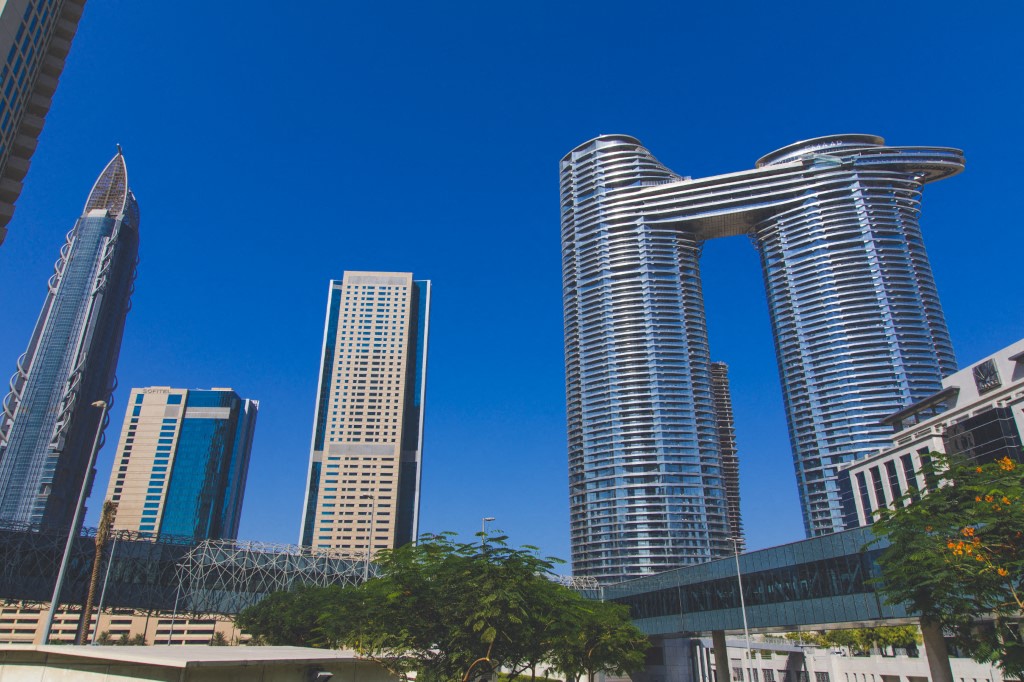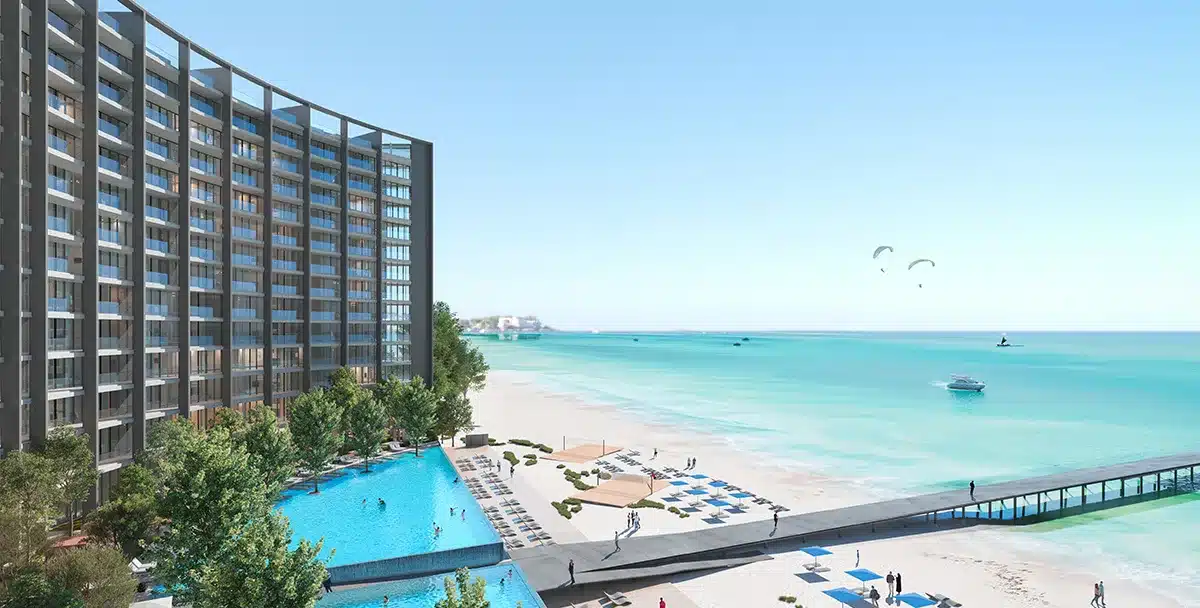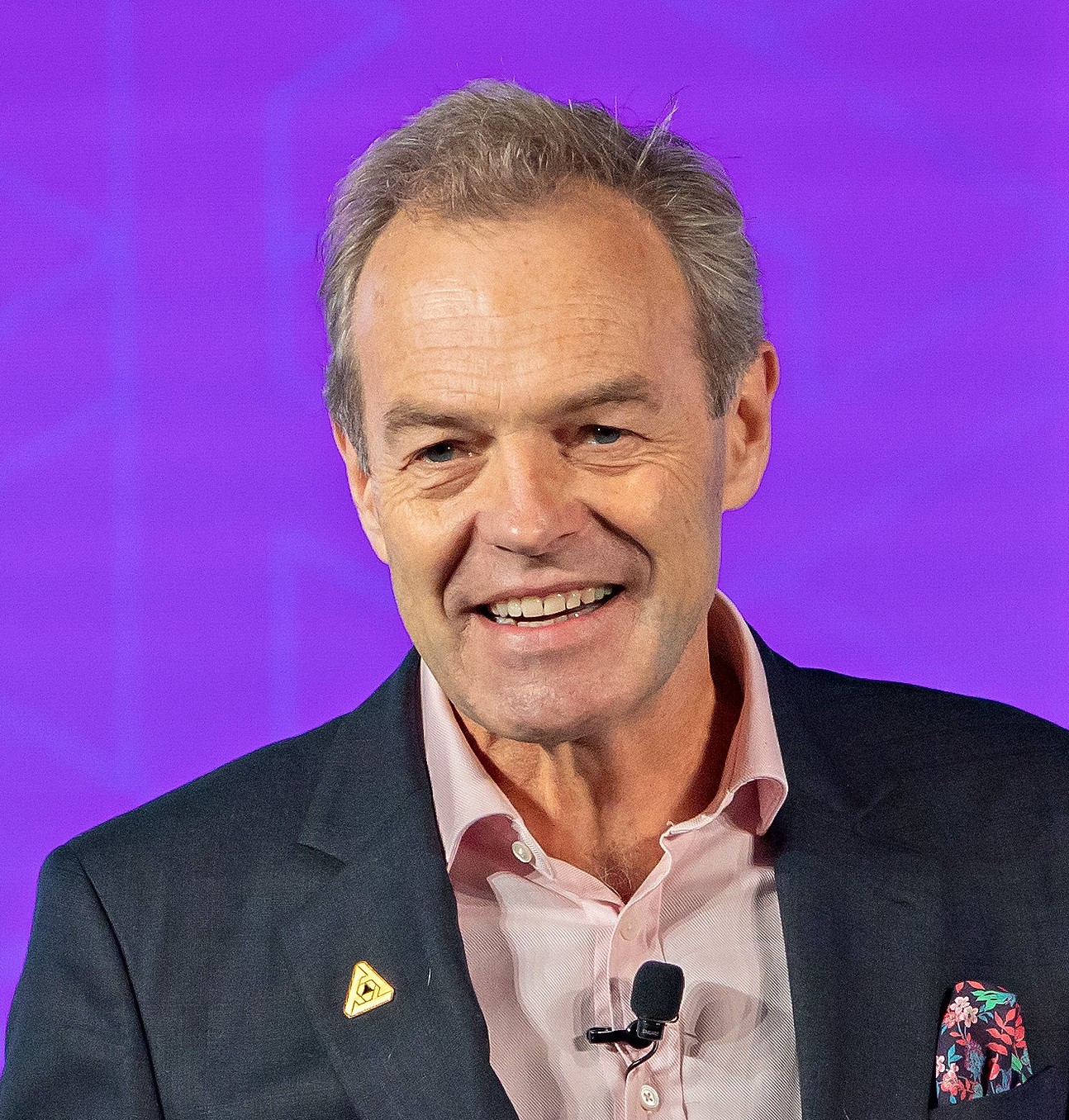Branded residences have grown by a staggering 180 percent globally over the past decade, reaching a total of 1,746 schemes, with 779 completed projects and 967 in the pipeline. Hotel brands account for 79 percent of the sector globally, whereof approximately two-thirds are positioned within the luxury segment.
Following the overwhelming success of the inaugural Branded Residences Forum at Future Hospitality Summit – FHS World last year, it has become an annual event in its own right and will be held in conjunction with FHS World in Dubai on 29 October 2025.
The one-day forum will take a deep dive into topics such as branded real estate investment, hospitality market spotlights, brand strategy and residential marketing, legal and contractual frameworks, design and sustainable development, cross-sector brand expansion, and loyalty, lifestyle and living.
Ahead of the event, I spoke with some of the leading experts to get their insights on the booming sector of branded residences.
What growth have you seen in branded residences, and which markets are showing the most growth/potential?
Riyan Itani, Director & Founder of Global Branded Residences
Our latest data shows that the first quarter of 2025 alone added 79 new pipeline projects, which is a 5 percent increase from the previous quarter. MENA dominated with 36 percent of those signings, led by the UAE (75 percent) and Egypt (11 percent). The Middle East accounts for 13 percent of the world’s completed supply and an impressive 25 percent of the global development pipeline, and Middle Eastern cities now dominate the global pipeline for branded residences, accounting for nine of the top 24 cities worldwide. Dubai retains its place as the most active international market for branded residences, outpacing global hubs such as Miami, New York, and London. Our decision to launch our branded residences advisory services for developers, investors, and landowners in the MENA region reflects our confidence in a market that continues to set global standards for luxury real estate. In addition, a new wave of branded residential activity is taking shape in Cairo, which now ranks fourth globally for pipeline projects, as well as in fast-developing destinations such as Al Marjan Island, the Red Sea, Jeddah, Abu Dhabi, Doha, and Muscat. While hotel-branded residences still dominate globally, GBR data shows that MENA has the world’s largest pipeline of non-hotel branded projects, reflecting a broader diversification of the sector.”
Jaidev Menezes, Regional Vice President, Mixed-Use Development – EMEA, Marriott International
Celebrating Marriott’s 25 years as a leader in branded residences, we continue to see strong portfolio growth. Our open and pipeline residential portfolio spans over 300 projects, 17 brands, and 50 countries and territories. We continue to see strong interest from developers across the EMEA region, especially in high-growth markets like the United Kingdom, Portugal, Italy, Greece, Spain, Turkey, the United Arab Emirates, Saudi Arabia, and Egypt.
Jeff Tisdall, Chief Business Officer, Accor One Living
Accor’s annual growth rate in the segment sits around 20 percent, with over 25 new projects signed each year, and an average of one branded residential community opening every six weeks. We are currently welcoming home more than 8,500+ residence owners at over 50 communities around the world, with another 130+ projects under development. Our largest presence is currently in North America, followed by the United Arab Emirates, Saudi Arabia, and Egypt. We also have an ambitious roster of residences underway in Mexico, Vietnam, the Philippines, Thailand, and South Korea. Meanwhile, Europe is where Accor has its deepest roots and most extensive hotel network. We are leveraging this advantage by actively introducing branded residence projects into key European cities, western European resorts, and eastern European emerging market locations.”
Rosa Piro, Chief Investment Officer, Arada
Arada has seen strong growth in its branded residences portfolio, reflecting both the popularity of these projects and the strategic appeal of partnering with globally recognized brands. In Sharjah, Arada led the market with the first branded residences in the Emirate, collaborating with Emaar’s trio of hotel brands, which include Vida and The Address, alongside the first-ever branded residences for the Rove brand: Rove Home Aljada. In addition, we also launched the first Anantara-branded hotel and branded residences concept in Sharjah, at Al Heera Beach. Our portfolio in Dubai has expanded with the launch of high-profile projects such as Armani Residences and W Residences along the shoreline. More recently, we introduced our own in-house branded concept, Akala, the world’s first precision wellness destination, further diversifying our offerings. Looking at market potential, the UAE remains a key growth region. Dubai continues to lead EMEA in branded residences, with over 50 completed schemes and consistently strong demand. Branded residences in Dubai continue to achieve significant price premiums over non-branded luxury properties, ranging from 20-30 percent in competitive submarkets such as Downtown and Business Bay, to double the average in prime locations like The Palm Jumeirah. The presence of more than 81,000 millionaires in Dubai also underpins strong demand for high-end branded developments, making it a highly attractive market for both investors and buyers.”

Do you expect the current pace of branded residence development to accelerate, plateau, or consolidate over the next three-five years?
Jeff Tisdall: We expect this strong momentum to continue. While traditional luxury brands remain in high demand, we foresee three exceptionally compelling areas of growth: our lifestyle portfolio of brands operated by Ennismore (led by brands like SLS, Mondrian, Delano, and Rixos) and premium brands (Swissôtel, Mövenpick and Pullman). This year, we opened the Swissôtel Hotel & Residences Corniche Park Towers Doha, Mövenpick Hotel & Residences Kotor Bay Montenegro, and Pullman Residences Newton Singapore, which is a standalone branded residence. This marks the third area where we expect significant growth: standalone projects that are not connected to hotels. These currently account for 12 percent of our existing network, and 25-30 percent of new signings these last years.
Jaidev Menezes: In the past five years, the Marriott Branded Residences portfolio has generated $7.2 billion in residential sales revenue for third-party developers. In the same time period, the company has grown its residential portfolio by approximately 60 percent, with plans to more than double its existing portfolio in the coming years. We are optimistic that we will continue to see strong demand from consumers and developers for co-located and standalone residential projects across luxury and premium brand segments.
Rosa Piro: Over the next three to five years, we expect the branded residences sector to consolidate rather than grow rapidly. Our tracking of monthly launches and market activity shows a slight slowdown in new branded residential projects compared to previous years. This is mainly due to the limited availability of prime land in Dubai’s top locations and rising land prices. Despite this, absorption rates for existing launches remain strong, showing that demand is still healthy. Dubai continues to lead globally in the number of branded residence projects, and the city is becoming a hub for non-hospitality branded developments. Projects linked to fashion, automotive, and luxury jewellery brands are attracting growing interest compared to traditional hospitality-led models. Although this sector is still relatively new for developers, early results are promising. With around 20,000 branded units expected to enter the market over the next five years, developers will need to stand out, meet buyer expectations and ensure these projects deliver real long-term value to avoid oversaturation in an increasingly competitive market.
What are developers and investors looking for most from hospitality brands when entering branded residence partnerships today?
All the experts agreed that a key driver for developers and investors is the association with a trusted brand and its inherent reputation for service excellence. A powerful brand collaboration not only enhances recognition but also elevates the project’s positioning. Equally important is the brand’s experience with the design, development and operation of lifestyle residences, both for the homeowners’ community experience and the investors’ long-term asset appreciation.
Rosa Piro: Sales and marketing support remains a key driver, with hospitality brands expected to leverage their global recognition and communication channels to enhance visibility and drive demand. Access to a brand’s existing database of HNWI buyers is also a significant advantage, helping developers accelerate absorption and achieve stronger sales.
Jeff Tisdall: Developers and investors want operators who can drive asset performance and extend their management solutions across hotels, residences, co-working solutions and office spaces, private clubs, and more. Accor One Living uniquely combines world-class hospitality expertise, real estate development acumen, sales, marketing, and pricing expertise, and hands-on homeowner community experience into an industry-first 360º platform that guides projects from inception to daily operations.
Jaidev Menezes: In our experience, branded projects have a strong track record of commanding significant price premiums and faster sales velocity versus comparable residential real estate. The premium is attributed to the buyers’ confidence in the consistent quality, design, finishes, and service associated with brands.
How do branded residences compare to traditional luxury real estate in terms of return on investment and resilience?
Jeff Tisdall: Hospitality-branded residences have been shown to hold their value and maintain price premiums over comparable non-branded residences on a long-term basis. According to Savills, the average global premium for branded residences is around 33 percent, and in emerging cities and resorts, this can be even higher, at 47 percent and 34 percent, respectively. In our experience, buyers are willing to pay a premium for a level of prestige that fits with their personal sense of luxury or lifestyle amenities, along with 24/7 services, and a brand experience that they love. Branded homes also tend to see faster absorption rates and retain their value over the long term due to global marketing reach, loyalty member following, and the association with a trusted brand that sustains buyer confidence and ensures lasting appeal.
Rosa Piro: Branded residences have consistently demonstrated stronger resilience compared to traditional luxury real estate, particularly during periods of market uncertainty. This resilience is largely attributed to the strength of the brand name, the quality of furnishings and FF&E and the comprehensive service offering that accompanies branded schemes. Collectively, these factors create a distinct value proposition that sustains demand even in more challenging cycles. Our in-house research indicates that on average, branded properties in Dubai achieve a price premium of 20-60 percent over comparable non-branded luxury assets within the same submarket.
What role do service quality and brand equity play in sustaining long-term value for owners and investors?
Rosa Piro: By incorporating a higher standard of amenities and tailored services such as concierge, housekeeping, childcare, or even pet care, branded projects create a lifestyle that goes beyond what traditional luxury developments typically offer. Brand equity is equally important. Association with a globally recognized brand provides buyers with assurance around design, quality of fit-out, and ongoing maintenance, while also providing prestige and a sense of security, particularly for brand loyalists. For investors, this translates into stronger capital preservation, higher resale potential, and, in many cases, access to income-generating rental pool models through hospitality partners. Ultimately, it is this combination of elevated service standards and the strength of the brand name that ensures branded residences continue to outperform non-branded counterparts in both desirability and long-term value”, said
Jeff Tisdall: When we talk about branded residences, we’re talking about a home, first and foremost. Each home is designed to the standards of one of our globally renowned brands, with the promise that it will also be operated in alignment with the brand’s values and philosophy. The excellent service quality of our teams is what delivers the brand promise in the day-to-day living experience of homeowners, keeping them satisfied, secure, and comfortable. Brand equity, on the other hand, sustains global desirability and resale demand for the residences, maintaining the value and return on a homeowner’s investment. Both factors are essential, and together, they transform branded residences from a one-time sales tool into a long-term value engine for developers, investors, residential homeowners, and operators alike.
Jaidev Menezes: Our 14,000 residence owners choose to live with our brands because they trust in our unwavering commitment to excellence – warmth, personalized service, and attention to detail. Many have remained part of our portfolio for decades, a testament to the enduring value we provide. This deep buyer confidence and brand affinity continue to drive interest in our properties, creating long-term value for developers and investors alike.
(Jonathan Worsley has a rich legacy shaping the hospitality and events industry as one of the founders of multiple leading international conferences including the Arabian Hospitality Investment Conference – now the Future Hospitality Summit, FHS Saudi, AHIF-Africa Hospitality Investment Forum, IDEEA Hospitality Investment Summit and South America’s SAHIC where he sits as a partner.)
Disclaimer: The views and opinions expressed in this Op-Ed are solely those of the author and do not necessarily reflect the official policy or position of TRENDS.









